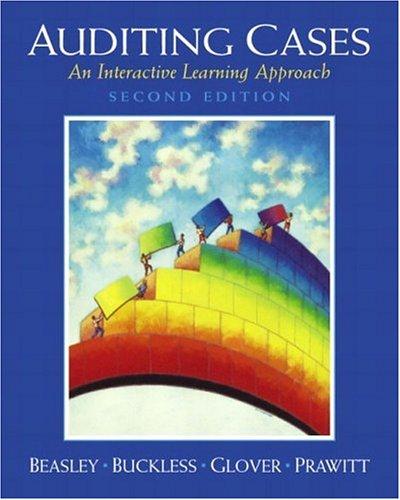Question
Is there any references and a brief explanation from CCJS 350 weekly readings to backup my post. This is my post for CCJS 350 week
Is there any references and a brief explanation from CCJS 350 weekly readings to backup my post. This is my post for CCJS 350 week two below:
While reading this weeks material I had mixed views on this. My nephew was a juvenile delinquent at an early age and began getting into trouble with the law at the age of 12 and by the time he turned 16 years old he was brought up on charges most adults haven't experienced in their life. He did things that he saw his friends doing and figured it was okay, but I feel he was not in a mature mind frame to know the danger that he would/could be faced with in the real world with no adult or guidance. When I asked my nephew why is he doing things that would land him either in jail or in an early grave instead of doing things a child his age should be doing such as going to school everyday and planning his future? He replied "I don't be doing nothing I just be hanging with my friends" and my mother know where I be at. Many juveniles such as my nephew can't handle a structured environment that will protect/shelter, cloth, and feed them. They are driven by the hype of their peers to see who does it the best. Sometimes I understand that among this age peer pressure can be very hard to deal with at times. On the other hand, some juveniles had never received the guidance from their parents or other adults in their lives because there are times the adults are more like a friend then someone who can and should be teaching them right from wrong because the child is doing things to get attention by acting out knowing they wouldn't have anyone to answer to after it's all said and done. Having guidance in my opinion can help juveniles not to turn to life of delinquency.
I would say the age of 14 years old might be a perfect age as they have more of a sense of awareness and understand right from wrong. Therefore they should be responsible for any and every crime they commit. They need to start taking responsibility for their own actions because they are not babies anymore. With that being said I am not saying punish them for life but I'm saying we need to seriously look at the crime(s) that were committed and conduct an assessment of each crime committed to determining the next course of action to help rehabilitate these juveniles. I feel that if we consistently open more programs that can help juvenile delinquencies mentally and physically we can stop them from being a lost cause in society.
Yes, I do agree that in some cases the waivers help juveniles become more aware of how serious the consequences are while committing serious crimes. Although, some juveniles are sadly considered a lost cause as they really didn't have the guidance that every child wants and needs to not resort to criminal behaviors. Being transferred to the adult courts for these types are juveniles only in my opinion doesn't help them as I feel it only makes them want to do more crimes so they can gain the respect in the streets or jail. I believe it truly depends on the mind frame of the delinquent and the crime(s) committed.
Step by Step Solution
There are 3 Steps involved in it
Step: 1

Get Instant Access to Expert-Tailored Solutions
See step-by-step solutions with expert insights and AI powered tools for academic success
Step: 2

Step: 3

Ace Your Homework with AI
Get the answers you need in no time with our AI-driven, step-by-step assistance
Get Started


